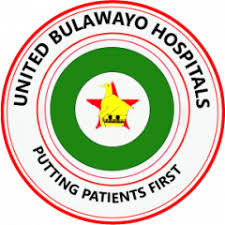
REGIONAL media watchdog, the Media Institute of Southern Africa (Misa) has expressed concern over the shrinking Press freedom and civic space in the southern African region, which has been worsened by enactment of repressive laws.
In a report titled The State of Press Freedom in Southern Africa 2022 produced with the support of the International Media Support, the Swedish embassy in Zimbabwe, Sigrid Rausing Trust and National Endowment for Democracy, Misa accused governments of enacting laws that muzzle the media.
It analysed the media environment and civic space in southern African countries that include Angola, Botswana, Eswatini, Lesotho, Malawi, Mozambique, Namibia, Tanzania, Zambia and Zimbabwe and revealed threats to free media in the region, including online and offline abuse of especially women journalists, new cybersecurity laws and surveillance and censorship of journalists.
“In southern Africa, the current landscape is marked by a shrinking civil space, as governments seek to exert greater control over civil society, thereby limiting their ability to operate independently and hold those in power accountable,” the report read.
“Governments are employing various tactics to intimidate activists, journalists and human rights organisations. This has resulted in a deterioration of the operating environment for civil society organisations, with restrictions on citizen participation and freedoms of association and assembly, arbitrary arrests, enforced disappearances, torture, and threats of closure and deregistration of non-governmental organisations.
“Examples of such governments include Zimbabwe, Zambia and Malawi, where civil society organisations face cumbersome registration processes and foreign funding regulations that silence any criticism of the State and State apparatus.
“This trend is due, in part, to governments’ focus on national security and economic development, which has led them to view civil society organisations as foreign agents that pose a threat to national interests. Zimbabwe’s legislature passed the ominous Private Voluntary Organisations Amendment Bill in December 2022 which, upon review, would have the effect of silencing civil society, freedom of association and ultimately freedom of expression,” the Misa report read.
The Bill is currently undergoing its final stretch of clerical cleaning and formatting at the Attorney-General’s Office before going to President Emmerson Mnangagwa, who is on record pledging his commitment to signing it into law.
- Mnangagwa in secret visit to Marange
- Global agency downgrades Zimbabwe’s growth projections
- Decomposed body of Taguta laid to rest
- Selmor keeps Mtukudzi’s legacy alive
Keep Reading
“This is further worsened by amendments to the Criminal Law (Codification and Reform) Act, which will sound the death knell for freedom of association and freedom of expression.
“In other parts of the region, such as Namibia and South Africa, there has been a recent trend of justifying laws on NGO registration or other regulations under the pretext of combating money-laundering and terrorist financing. While these concerns may have merit, they can also be exaggerated to justify excessive government control over NGOs, intentionally or unintentionally.”
The report added that: “Southern Africa is grappling with a complex political, economic, and social crisis that threatens the exercise of freedom of expression, media freedom, access to information and associated rights.
“This crisis is characterised by numerous interrelated factors, including corruption, political repression, economic instability, and social inequality.
“We are witnessing an intensifying of crackdown on journalists, human rights activists, leaders of social movements, political activists, and trade unionists who have exposed gross human rights violations, authoritarian tendencies, corruption, lack of service delivery, and social justice.”










